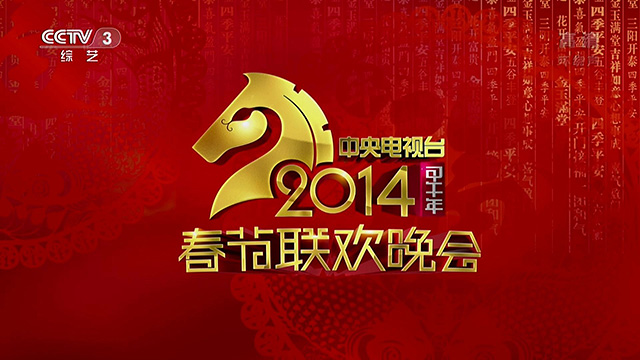
February 5, 2014, by Tony Hong
‘Too Much Politics Not Enough Tennis’, say bloggers.
By Dr. David O’Brien,
Assistant Professor, School of Contemporary Chinese Studies at the University of Nottingham Ningbo China.
Last Thursday night 704 million people in China sat down to watch the same television programme. The annual CCTV Spring Festival Gala is by far the most watched television show in the world and though often mocked for being old-fashioned and kitschy, New Year’s Eve for most Chinese simply would not be the same without it.
A few days later, by comparison, the US Superbowl could only attract a 111.5 million viewers.
In its own English language review of the epic five-hour show CCTV wrote “As usual, the gala included singing, dancing, mini dramas, as well as the traditional cross-talk dialogues, martial arts and opera performances.
To draw in younger viewers, South Korean pop star Lee Min-ho was invited to the 2014 gala. Lee sang a Chinese pop song in both Korean and Mandarin, with Harlem Yu from Taiwan. Also adding to the international flavor this year was renowned French actress Sophie Marceau. The former “Bond girl” took the CCTV stage for the first time. She performed the famous French song La Vie En Rose with the Chinese artist Liu Huan.
Hong Kong singer Kelly Chen and actor Tony Leung Ka Fai danced the waltz together as they sang. The pianist Lang Lang was in the line-up. And young singers selected from TV talent shows also joined the show”.
Yet despite all this excitement, online discussion afterwards tended to focus not so much on Lee, Marceau and all that cross-talk, but rather on the absence of perhaps the biggest star in China today and a widely held view that there was too much politics in the show this year.
The new slogan of ‘Chinese Dream’, the idea of working hard to achieve a comfortable middle-class life was prominent. Before the great performance began Minister of the Central Propaganda Department Liu Qibao urged that the gala should “spread positive energy” and promote “the rhythm of our era — the Chinese Dream.”
Some of the old classics such as ‘Red Detachment of Women’, a revolutionary ballet set in the 1930s also received an airing.
Film director Feng Xiaogang was in charge of this year’s show, assisted by comedian Zhao Benshan but many online commentators expressed disappointment saying it lacked much of its usual satirical comedy.
Another big subject in the Chinese blogosphere was the absence of newly-crowned Australian Open tennis champion Li Na. Superstar Li had been expected to make an appearance on the show but turned down the invitation in favour of returning home to Wuhan.
A picture of a beaming official presenting a very bored looking Ms Li with a cheque for 800,000 yuan on her homecoming has gone viral, provoking much amusement.
CCTV Spring Festival Gala was also the only show in town this year with three ministry-sponsored Spring Festival galas being cancelled as part of the Party’s campaign against extravagance.
The State General Administration of Press, Publication, Radio, Film and Television also required that galas on regional TV stations over the Spring Festival should not exceed three per evening.
“Excessive use of stage lighting, sound effects and decorations will be banned, fewer celebrities will be hired and more grassroots people will come to the stage,” newspaper Youth Daily had reported in the run-up.
In the US advertisers pay an average of $4 million for a 30-second commercial during the Super Bowl but in China CCTV is not allowed to charge for adverts during the Gala.
Another topic of online chatter was the rather bizarre performance of Wei Caiqi, a 15-year-old girl, the niece of famous Chinese dancer Yang Liping, who spent four hours of nonstop spinning in a circle.
It’s perhaps a good thing that this all comes but once a year.
No comments yet, fill out a comment to be the first

Leave a Reply